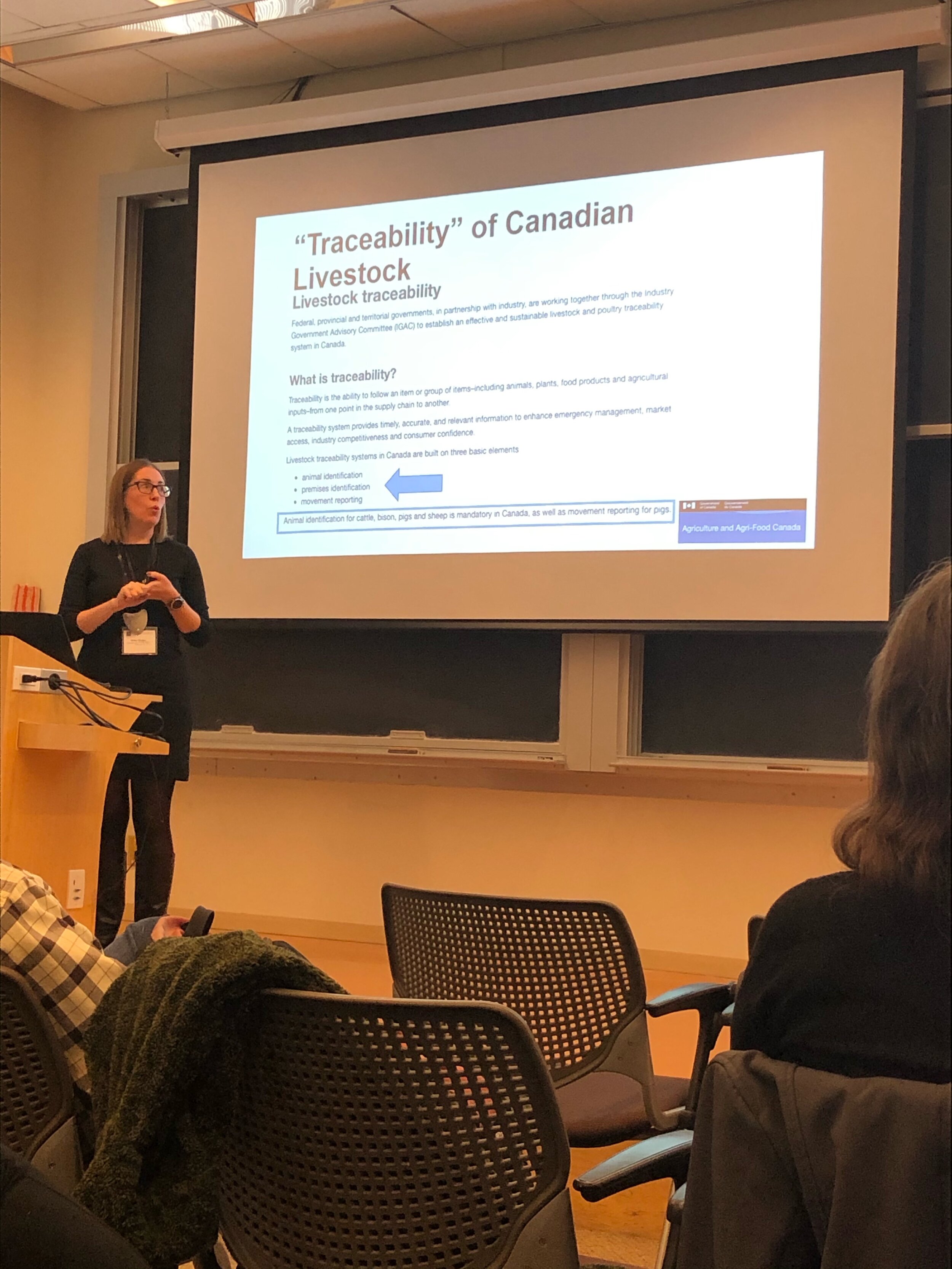Written by Amy Greer
On
In graduate studies, research, thesis defense
Tagged graduate students, graduate studies, research
Where is everyone this week?
Photo courtesy of Roksolana Hovdey
Mathepilab members join national and international colleagues at the Fields Institute in Toronto this week for a workshop entitled Borders in Public Health and Mathematical Epidemiology. This exciting workshop combines the quest for knowledge in public health policy where borders play an important role with the identification of mathematical models that can be utilized to advance such policy. Here is Amy discussing approaches in the prevention and control of “transboundary” animal diseases.
New Paper Out From Mathepilab Member Emma Gardner!
Middle East respiratory syndrome coronavirus (MERS-CoV) is a zoonotic disease transmitted from dromedary camels to people, which can result in outbreaks with human-to-human transmission. Emma’s paper estimated the force of infection of MERS-CoV within camel populations in order to improve our understanding of MERS-CoV dynamics in camels raised outside of the Middle East. Congratulations Emma!
The Second Annual International Equine Symposium
Earlier this month, Amy travelled to Calgary to share the final results of our equine network and biosecurity project with colleagues at the second annual International Equine Symposium. The symposium was chock full of the most exciting discoveries and innovation in all areas of equine health research! It was a great way to interact with equine practitioners, researchers and students and culminated in an evening at Spruce Meadows to watch the 6-bar jumping event. What a fantastic event!
Photo courtesy of Amy Greer
How Many Lab Members Can We Fit in a Picture?
With the beginning of each new academic year, we welcome new faces to our lab family. Welcome to mathepilab Lindsay and Thivya!
Photo courtesy of Amy Greer
Super Awesome!
Listen to our fearless leader, Dr. Amy Greer, discuss water safety from a One Health perspective on the Super Awesome Science Show.
Congratulations to former mathepilab member Dr. Kelsey Spence!
Kelsey’s research characterizing the movement network of horses in Ontario has been published in PLOS ONE! The results indicated that horses did not travel to the same locations each month, and the most connected locations varied between consecutive months. These results support the need to better understand the variety of locations to which horses can travel in Ontario, as different types of locations may have different associated risks of disease spread.







